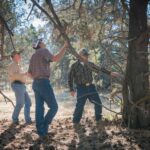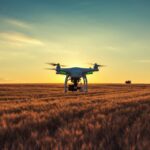A Portland City Club panel explores the intersection between indigenous leadership, natural resource management and environmental justice.
The Friday Forum speakers included moderator Paul Lumley, executive director for the Columbia River Inter-Tribal Fish Commission, Direlle Calica from the Northwest Energy Coalition and Our Native American Business & Entrepreneur Network board member, Shawn Fleek from OPAL Environmental Justice Oregon and Grand Ronde Tribal Council member Kathleen George.
Here are a few of the panelists’ takeaways from the Oct. 21 discussion, which focused on tribal efforts to protect natural resources in Oregon and nationwide.
Fossil fuels and renewable energy
Lumley: “One of biggest challenges: fossil fuels transported through the Gorge. We had a disaster already with [the Mosier oil train derailment]. We have one of the biggest oil transfer station proposed just across the river in Vancouver. If that proposal goes though we’re going to have at least 10 times more trains go through. The question isn’t if there’s going to be an accident in the future; it’s when and how many. Tribes have stepped forward on this topic more than I have seen in decades.”
Calica: “Going forward renewable energy is going to be a critical resource for tribes. There are plenty of places tribes can intersect with development of resources and economic development.”
Portland Superfund cleanup
George: “I really believe that for Oregon the Portland Harbor cleanup is going to be one of hottest litmus tests for our generation. I think now is the time we really have to dig deep. As a community we have to push for the best cleanup we possibly can so we can have the best healing of our resources to support Oregon.”

Environmental justice
Fleek: “The [environmental] issues of nonwhite communities have yet to be really elevated to the level of concern for those of the white community. When we think about how we’re going to change the conversation, it’s important to elevate the stories of the community that have been marginalized.”
“We have to listen to those people who are most impacted. This is the truth on how you solve any environmental injustice. Targeted universalism. Find the persons most harmed … and the concerns of everyone else … will be addressed.”
Tribal leadership
Calica: “Tribes have not had a seat at the table. That’s one of the things we’re pushing for: to have a seat and have our voices heard.”
George: “One of the things we can do is support our state agencies, support our federal agencies, our local agencies and our tribes when they take a look [at environmental issues]. It’s very hard for small rural tribes to get the funding to do this kind of work. If we aren’t taking a look we don’t know what those potential problems are.”
Fleek: “I think there’s a spirit of cooperation that’s underlining the desire to do economic development — which is essential. We want to do what’s best for our people.”





